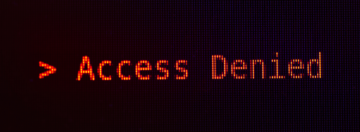Contractor Marijuana Use Policy Trumps State Law

If you are working for a Department of Defense contractor there is an almost 100% likelihood they have a policy outlining the prohibition of illegal drug use. Now, say you live and work in Colorado, Washington, or in any number of the other states where recreational or medical use of marijuana is legal. Your argument is that since it is legal in that state you can partake in a few puffs, bites, or other forms of cannabis intake, right? Wrong! DoD contractor companies enter into agreements with the federal government and must abide by federal laws and regulations. Marijuana use is still illegal in accordance with Federal law. Contract requirements apply to you if you work for a company on a federal contract.
Recently, a security clearance applicant found this out when his clearance denial was upheld by the Defense Office of Hearing and Appeals judge. Here is a quick summary of the case: the applicant disclosed his marijuana use from February 2014 to July 2015 on the SF-86 which he submitted in October 2015 after he was hired by a DoD contractor. He also answered “No” on the question “Do you intend to use this drug or controlled substance in the future?” Unfortunately, he and a friend decided to partake in marijuana consumption in December 2015, in violation of his employer’s policy. Despite his argument that it was legal to do so in that state, the judge stated that the applicant had not mitigated concerns about his judgment and willingness to comply with laws, rules and regulations. Clearance denied!



Wonder what the outcome would be if a person lived in Colorado and used marijuana before they ever even applied for a job requiring a clearance, then got hired and submitted their forms. Let’s say on the forms this person said, yes, I smoked pot yesterday, but if I get this job I’ll stop.
So in my hypothetical scenario, the drug use occurs when the person is not cleared or even employed by a contractor, but the drug use is very recent.